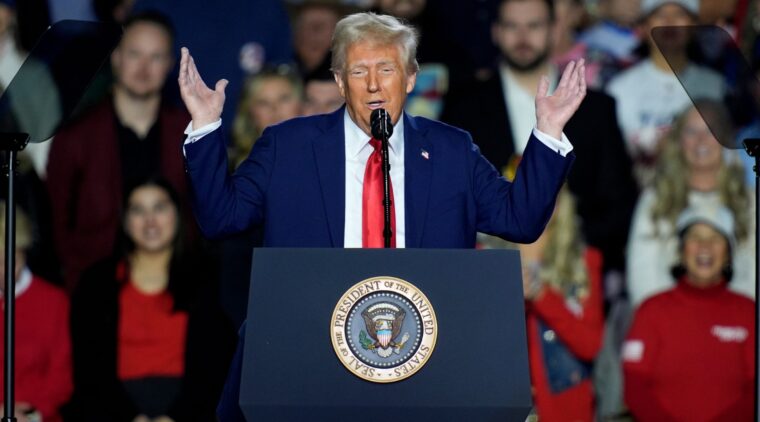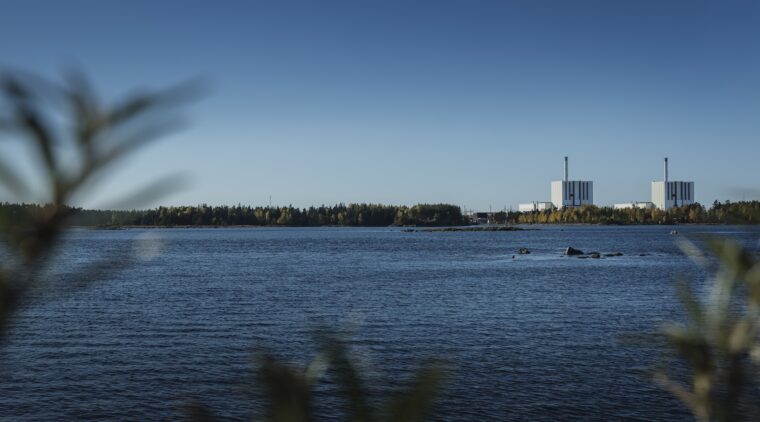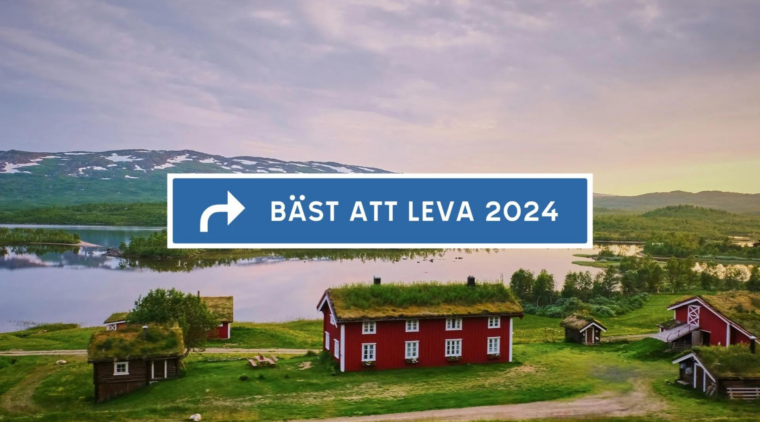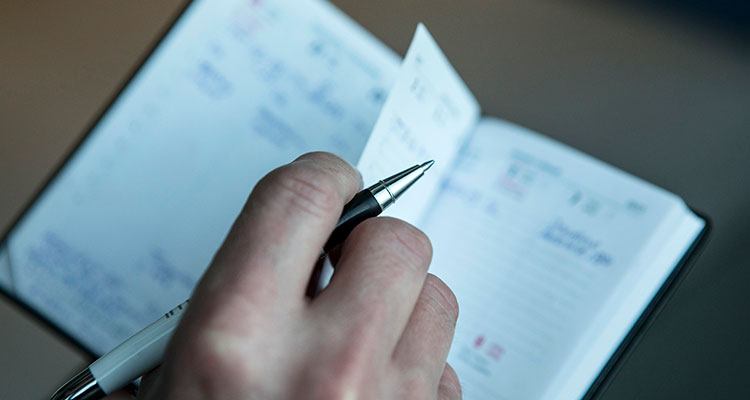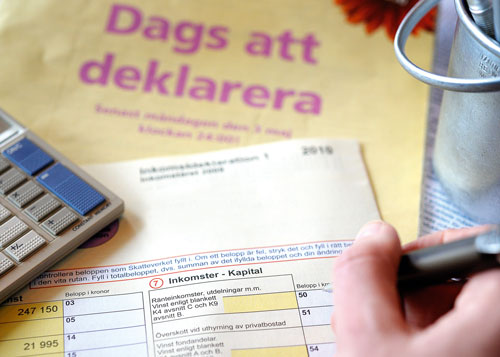Bianca Jagger, den oklippta intervjun
We have seen you defending human rights, criticizing wars all over the globe and also being very active in the talks on the climate change. Where do you find your energy to all this?
Sometimes I ask myself the same question! I try to rest wherever and whenever I can, usually on the plane. My health has not been so good in recent years, so traveling can be difficult for me.
You were born and brought up in Nicaragua, how has that affected you in what you are doing today?
I was born under the despotic dictatorship of the Somoza family. As a teenager, I watched the Somozas’ National Guard inflict terror on the civilian population. I felt powerless, because all I could do was participate in student demonstrations to protest against these massacres. I decided then that I never wanted to feel powerless again in the face of atrocities committed by those with no respect for human rights or civil liberties.
I also saw my mother discriminated against because of her gender, and vowed that I would never allow myself to be considered a second-class citizen because of my gender.
My work now is a direct result of my experiences in Nicaragua. It is thanks to them that I have been an advocate of human rights, social and economic justice and climate protection for the last 25 years.
Since you started getting involved in the human rights issues, you must have seen a lot of difficulties. What has touched you the most?
Of all the things I have experienced in my life, injustice against children has always been the most shocking. Witnessing the suffering of innocent children as I have, for example meeting the child victims of sexual exploitation, is a distressing experience. Children are the real victims of war, and it is for them, primarily, that I speak out against war.
If I had to choose a particular moment, it would perhaps be trying to evacuate two children from Bosnia, Mohamed and Sabina. Mohamed survived the trip, and came to live with me in New York for a year. But Sabina died in Croatia. The refusal of the international community to make the necessary provision for the evacuation of children in medical need was unacceptable. My experiences in Bosnia strengthened my opposition to war.
You seem like a very busy woman. How do you pick what to spend your time on?
It’s very difficult. There are so many urgent issues we need to address in the world today. I try to ask myself where I will be most effective. I don’t just choose the issues I care about the most, I look at where my advocacy can be most effective.
Do you believe more celebrities should use their platform of fame – so to speak – on getting involved / put focus on important issues?
They have a responsibility to do so, but making a difference requires more than just a photo opportunity. Unfortunately, celebrities are often considered role models today. They have a responsibility to be properly informed.
Bob Geldof and Bono did a lot of damage to the Making Poverty History campaign. They got seduced by rubbing shoulders with heads of state.
Along with Tony Blair and George Bush, they formed a mutual admiration club of rock stars and men who would love to be them, acting as though no one had ever spoken about the eradication of poverty before.
George Clooney, Mia Farrow and Richard Gere are some of the celebrities who have worked for real change. And Robert Redford has contributed significantly to the debate about environmental protection.
You often talk of how important a sustainable development is. What is the greatest challenge for our society of today?
We are at a crossroads in human history. We face unprecedented threats, both to human security and to the environment. We have witnessed numerous assaults on the rule of law, human rights and civil liberties. And we have entered a dangerous period in world politics, where our politicians are not being held accountable for their deceptions and failures.
We are at a number of “tipping points” that threaten to foreclose on our common future. One of the greatest threats is climate change. The challenge we are facing now is how to switch to a more secure, lower-carbon energy system that does not undermine economic and social development, and addresses the threats of climate change and global inequality. We must bring about fundamental change in our energy systems, with a renewed focus on energy security and lower, if not zero, carbon emissions.
Climate change is not an isolated environmental issue. It touches every part of our lives: peace, security, human rights, poverty, hunger, health, mass migration and economics.
Your native country Nicaragua has received billions of dollars in foreign aid since -79, from Sweden and other countries. Still Nicaragua is one of the poorest nations in the world today. What will it take to change that difficult situation?
When I was born in Nicaragua, we lived under a brutal dictatorship. Today, my home country is threatened by the dictatorial aspirations of the current President, Daniel Ortega, who is abusing his power and distorting democratic processes.
The Nicaraguan electoral council, dominated by the Sandinistas (FSLN) and the Liberal Constitutional party (with whom Ortega has an unholy alliance), recently banned the two opposition parties: the Sandinista Renewal Movement and the Conservative Party. Ortega has betrayed the ideals of the revolution and is seeking to eliminate all opposition. Dora María Téllez, known as “Commandante 2” and a hero of the Sandinista revolution, recently staged a 12-day hunger strike, protesting against the removal of her party and others from the electoral process. I fully support Dora María’s struggle, and I hope that the people of Nicaragua will follow her example and stand up for their right to democracy.
In the letter I co-signed with Noam Chomsky, Salman Rushdie and others, we wrote, “None of these demands is irrational and a government that wants popular support ought to respond to them. Political representation is a right. It is a right to protest against mechanisms that shut down this space. Dora Maria represents a broad sector of Nicaraguan society that ought to be listened to.” It’s astonishing that the letter received no response from the government.
Next fall, Sweden will chair the EU. And in November the next Kyoto protocol is to be signed. What do you expect from this new protocol?
We all fear that, after the near-failure of the Kyoto protocol, the Copenhagen process negotiations are doomed to failure. But that needn’t be so. Furthermore, must not allow this process to become “lip service”: the caps should not be set at what governments are prepared to do, but at what it is imperative that we must do, taking into account what science tells us the planet needs. We must take heed of the warnings in the latest scientific findings. Governments must take responsibility for implementing solutions.
You are supporting the 350 ppm initiative. But looking at your schedule, you do travel a lot. How do you compensate for your climate emissions?
When it’s not possible to walk, I use public transport, and I don’t have a car. I am obsessive about saving energy around the house: I try not to leave anything on stand-by. Whenever possible, I turn the heating off (I have also turned it down by 1 degree), and I never use air conditioning. If I owned my own home, I would have it entirely retrofitted with solar panels and other renewable energy technologies.
Bill McKibben has now introduced the world to “the most important number on Earth”: 350 . Quoting NASA’s James Hansen, he explains that we must rapidly lower the level of carbon dioxide in our atmosphere, to 350 parts per million, “if we wish to preserve a planet similar to that on which civilization developed”. If we do not make 350 the most important number on Earth, future generations will be faced with trying to survive on an overheated planet. They will have no option but to devote time, resources and energy to managing the consequences of their ancestors’ short-sightedness. I am trying to do my bit to make sure that doesn’t happen, by making changes in my personal life and by pledging my support at www.350.org.
In July, you are going to the G8 summit in Japan, accompanied by a lot of children and even more letters. Why is that?
The World Future Council, an organization of which I am the President, would like to take a delegation of children concerned about the state of the planet to meet with the G8 leaders and deliver their message in the form of letters, drawings and paintings. Next week, we will meet with State Secretary Pfaffenbach, and government representatives at the Japanese embassy, to deliver some of the letters.
I hope that our leaders will listen to young people's concerns. It will be a rare opportunity for young people to reach out to politicians. Their voices need to be heard.
The next president of the US plays an important role in the questions dear to you. What do you think of the possiblities, for the two candidates, to change the world?
I can only think of the possibilities of one candidate, Barack Obama. I think he can effect real change in America, and therefore in the world. I hope he will withdraw from Iraq, and distance himself from the catastrophic foreign policies of George Bush.
I hope that Mr Obama will be able to bring about nuclear disarmament, that he will honour his environmental commitments, and that he will end the assaults on human rights, the erosion of civil liberties, and the flagrant violations of international law perpetrated under the current administration. America, and the world, deserves a change. I believe the US can be brought back to the heart of the international community with a leader like Obama.
What are your plans for the future? What is left to do?
Today we stand at a crossroads in history. Most climate scientists have sounded urgent alarms, warning us about the imminent threat of climate change, and the impending tipping point. Given the scale of this impending disaster, we have no choice but to embark upon a global renewable energy revolution.
We have reached both an environmental and an economic tipping point. Which direction we choose to take will decide the fate of our planet. What is certain is that we must bring about fundamental change in our energy systems, with a renewed focus on lower, if not zero, carbon emissions. 350 is a dramatic target that will require us to replace our carbon-driven economy with a renewable energy economy. We have to figure out how to live without fossil fuels someday – why not now?
In a previous version of this article we made the defamatory allegation that Bianca Jagger had ridden naked into Studio 54 on a horse. This is incorrect - she was in fact dressed in a full-length Halston gown, and did not ride into the club. The horse was brought to her as a birthday surprise, whereupon she mounted it, and photographs were taken. We apologise to Ms Jagger for any distress or embarrassment our error caused her and her family.
Sometimes I ask myself the same question! I try to rest wherever and whenever I can, usually on the plane. My health has not been so good in recent years, so traveling can be difficult for me.
You were born and brought up in Nicaragua, how has that affected you in what you are doing today?
I was born under the despotic dictatorship of the Somoza family. As a teenager, I watched the Somozas’ National Guard inflict terror on the civilian population. I felt powerless, because all I could do was participate in student demonstrations to protest against these massacres. I decided then that I never wanted to feel powerless again in the face of atrocities committed by those with no respect for human rights or civil liberties.
I also saw my mother discriminated against because of her gender, and vowed that I would never allow myself to be considered a second-class citizen because of my gender.
My work now is a direct result of my experiences in Nicaragua. It is thanks to them that I have been an advocate of human rights, social and economic justice and climate protection for the last 25 years.
Since you started getting involved in the human rights issues, you must have seen a lot of difficulties. What has touched you the most?
Of all the things I have experienced in my life, injustice against children has always been the most shocking. Witnessing the suffering of innocent children as I have, for example meeting the child victims of sexual exploitation, is a distressing experience. Children are the real victims of war, and it is for them, primarily, that I speak out against war.
If I had to choose a particular moment, it would perhaps be trying to evacuate two children from Bosnia, Mohamed and Sabina. Mohamed survived the trip, and came to live with me in New York for a year. But Sabina died in Croatia. The refusal of the international community to make the necessary provision for the evacuation of children in medical need was unacceptable. My experiences in Bosnia strengthened my opposition to war.
You seem like a very busy woman. How do you pick what to spend your time on?
It’s very difficult. There are so many urgent issues we need to address in the world today. I try to ask myself where I will be most effective. I don’t just choose the issues I care about the most, I look at where my advocacy can be most effective.
Do you believe more celebrities should use their platform of fame – so to speak – on getting involved / put focus on important issues?
They have a responsibility to do so, but making a difference requires more than just a photo opportunity. Unfortunately, celebrities are often considered role models today. They have a responsibility to be properly informed.
Bob Geldof and Bono did a lot of damage to the Making Poverty History campaign. They got seduced by rubbing shoulders with heads of state.
Along with Tony Blair and George Bush, they formed a mutual admiration club of rock stars and men who would love to be them, acting as though no one had ever spoken about the eradication of poverty before.
George Clooney, Mia Farrow and Richard Gere are some of the celebrities who have worked for real change. And Robert Redford has contributed significantly to the debate about environmental protection.
You often talk of how important a sustainable development is. What is the greatest challenge for our society of today?
We are at a crossroads in human history. We face unprecedented threats, both to human security and to the environment. We have witnessed numerous assaults on the rule of law, human rights and civil liberties. And we have entered a dangerous period in world politics, where our politicians are not being held accountable for their deceptions and failures.
We are at a number of “tipping points” that threaten to foreclose on our common future. One of the greatest threats is climate change. The challenge we are facing now is how to switch to a more secure, lower-carbon energy system that does not undermine economic and social development, and addresses the threats of climate change and global inequality. We must bring about fundamental change in our energy systems, with a renewed focus on energy security and lower, if not zero, carbon emissions.
Climate change is not an isolated environmental issue. It touches every part of our lives: peace, security, human rights, poverty, hunger, health, mass migration and economics.
Your native country Nicaragua has received billions of dollars in foreign aid since -79, from Sweden and other countries. Still Nicaragua is one of the poorest nations in the world today. What will it take to change that difficult situation?
When I was born in Nicaragua, we lived under a brutal dictatorship. Today, my home country is threatened by the dictatorial aspirations of the current President, Daniel Ortega, who is abusing his power and distorting democratic processes.
The Nicaraguan electoral council, dominated by the Sandinistas (FSLN) and the Liberal Constitutional party (with whom Ortega has an unholy alliance), recently banned the two opposition parties: the Sandinista Renewal Movement and the Conservative Party. Ortega has betrayed the ideals of the revolution and is seeking to eliminate all opposition. Dora María Téllez, known as “Commandante 2” and a hero of the Sandinista revolution, recently staged a 12-day hunger strike, protesting against the removal of her party and others from the electoral process. I fully support Dora María’s struggle, and I hope that the people of Nicaragua will follow her example and stand up for their right to democracy.
In the letter I co-signed with Noam Chomsky, Salman Rushdie and others, we wrote, “None of these demands is irrational and a government that wants popular support ought to respond to them. Political representation is a right. It is a right to protest against mechanisms that shut down this space. Dora Maria represents a broad sector of Nicaraguan society that ought to be listened to.” It’s astonishing that the letter received no response from the government.
Next fall, Sweden will chair the EU. And in November the next Kyoto protocol is to be signed. What do you expect from this new protocol?
We all fear that, after the near-failure of the Kyoto protocol, the Copenhagen process negotiations are doomed to failure. But that needn’t be so. Furthermore, must not allow this process to become “lip service”: the caps should not be set at what governments are prepared to do, but at what it is imperative that we must do, taking into account what science tells us the planet needs. We must take heed of the warnings in the latest scientific findings. Governments must take responsibility for implementing solutions.
You are supporting the 350 ppm initiative. But looking at your schedule, you do travel a lot. How do you compensate for your climate emissions?
When it’s not possible to walk, I use public transport, and I don’t have a car. I am obsessive about saving energy around the house: I try not to leave anything on stand-by. Whenever possible, I turn the heating off (I have also turned it down by 1 degree), and I never use air conditioning. If I owned my own home, I would have it entirely retrofitted with solar panels and other renewable energy technologies.
Bill McKibben has now introduced the world to “the most important number on Earth”: 350 . Quoting NASA’s James Hansen, he explains that we must rapidly lower the level of carbon dioxide in our atmosphere, to 350 parts per million, “if we wish to preserve a planet similar to that on which civilization developed”. If we do not make 350 the most important number on Earth, future generations will be faced with trying to survive on an overheated planet. They will have no option but to devote time, resources and energy to managing the consequences of their ancestors’ short-sightedness. I am trying to do my bit to make sure that doesn’t happen, by making changes in my personal life and by pledging my support at www.350.org.
In July, you are going to the G8 summit in Japan, accompanied by a lot of children and even more letters. Why is that?
The World Future Council, an organization of which I am the President, would like to take a delegation of children concerned about the state of the planet to meet with the G8 leaders and deliver their message in the form of letters, drawings and paintings. Next week, we will meet with State Secretary Pfaffenbach, and government representatives at the Japanese embassy, to deliver some of the letters.
I hope that our leaders will listen to young people’s concerns. It will be a rare opportunity for young people to reach out to politicians. Their voices need to be heard.
The next president of the US plays an important role in the questions dear to you. What do you think of the possiblities, for the two candidates, to change the world?
I can only think of the possibilities of one candidate, Barack Obama. I think he can effect real change in America, and therefore in the world. I hope he will withdraw from Iraq, and distance himself from the catastrophic foreign policies of George Bush.
I hope that Mr Obama will be able to bring about nuclear disarmament, that he will honour his environmental commitments, and that he will end the assaults on human rights, the erosion of civil liberties, and the flagrant violations of international law perpetrated under the current administration. America, and the world, deserves a change. I believe the US can be brought back to the heart of the international community with a leader like Obama.
What are your plans for the future? What is left to do?
Today we stand at a crossroads in history. Most climate scientists have sounded urgent alarms, warning us about the imminent threat of climate change, and the impending tipping point. Given the scale of this impending disaster, we have no choice but to embark upon a global renewable energy revolution.
We have reached both an environmental and an economic tipping point. Which direction we choose to take will decide the fate of our planet. What is certain is that we must bring about fundamental change in our energy systems, with a renewed focus on lower, if not zero, carbon emissions. 350 is a dramatic target that will require us to replace our carbon-driven economy with a renewable energy economy. We have to figure out how to live without fossil fuels someday – why not now?
In a previous version of this article we made the defamatory allegation that Bianca Jagger had ridden naked into Studio 54 on a horse. This is incorrect – she was in fact dressed in a full-length Halston gown, and did not ride into the club. The horse was brought to her as a birthday surprise, whereupon she mounted it, and photographs were taken. We apologise to Ms Jagger for any distress or embarrassment our error caused her and her family.

